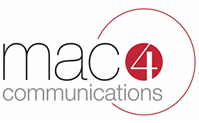In the late 1990s, when my job as a business newswire reporter required me to listen in and report on quarterly and annual corporate earnings calls, my colleagues – all of us young and irreverent – laughed about creating a bingo game for the trendy corporate phrases and buzzwords we heard on each and every call; none of which made it into our subsequent coverage.
At the time, we were hearing phrases like: “bandwidth,” the “burning platform,” “synergies,” “economies of scale,” and, of course, the use of “table” as a verb. Many of them are still around, along with other upstarts like: “deep dive,” “get behind that” and, of course, “disruptor.”
This is not an indictment from someone who’s “holier-than-thou.” Hang around people in business long enough and we’re all guilty, especially for those of us who’ve stuck around long enough to “drink the Kool-Aid.” Instead, it’s a gentle reminder that those of us who are responsible for communicating our organization’s achievements and intentions should aim to be as clear as possible. Meaning that we need to “pushback” to our leaders that instead of “leveraging” the trendiest terms to sound as though we’re all members of the same club, we should strive for clarity.
We have an obligation to “pivot” and help our leaders speak – and communicate business goals – in the simplest, most jargon-free way possible. We want our words to be easily understandable to a range of audiences, — most importantly, our employees, customers, shareholders and partners.
That doesn’t mean some of that bizspeak vernacular won’t sneak into our conversation – it probably will. But just as we only say “For Realz” while driving our kids to the mall, we should equally limit our business jargon: it shouldn’t end up in our speeches, presentations, internal articles, press releases, brochures or other prepared communication.
Because “at the end of the day” if what we’ve managed to say doesn’t explain clearly what we have done or plan to do, and we don’t “drill down” to the actual hard – or “granular” details, we risk a credibility challenge. We risk sounding like we either don’t understand our business or the situation at hand, we risk turning people off or having them tune out and worse: we risk conveying the impression that we are avoiding telling people what they want or need to know.
And that’s certainly not “where we want to be” when we communicate about our business.
Author: Kristina Schurr

